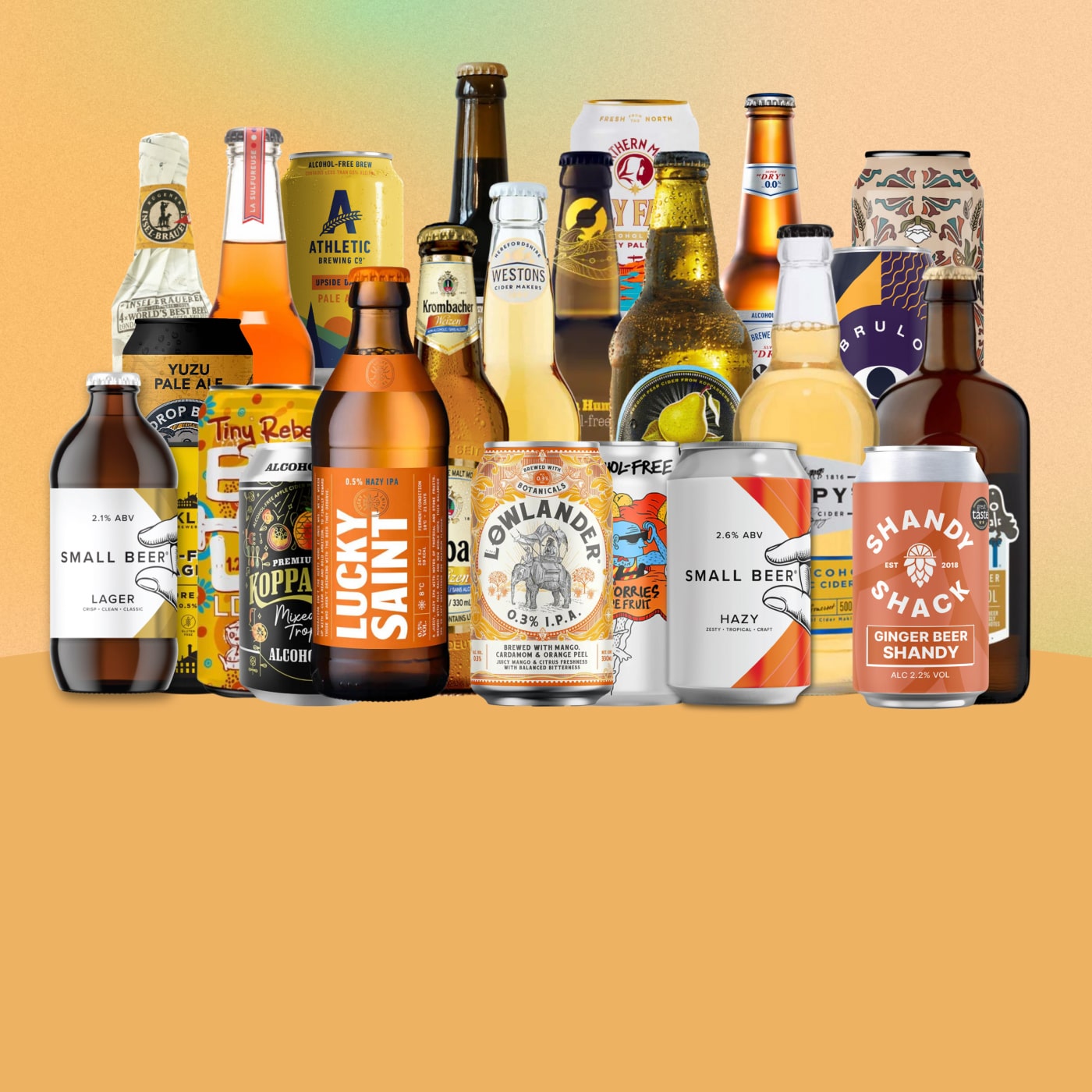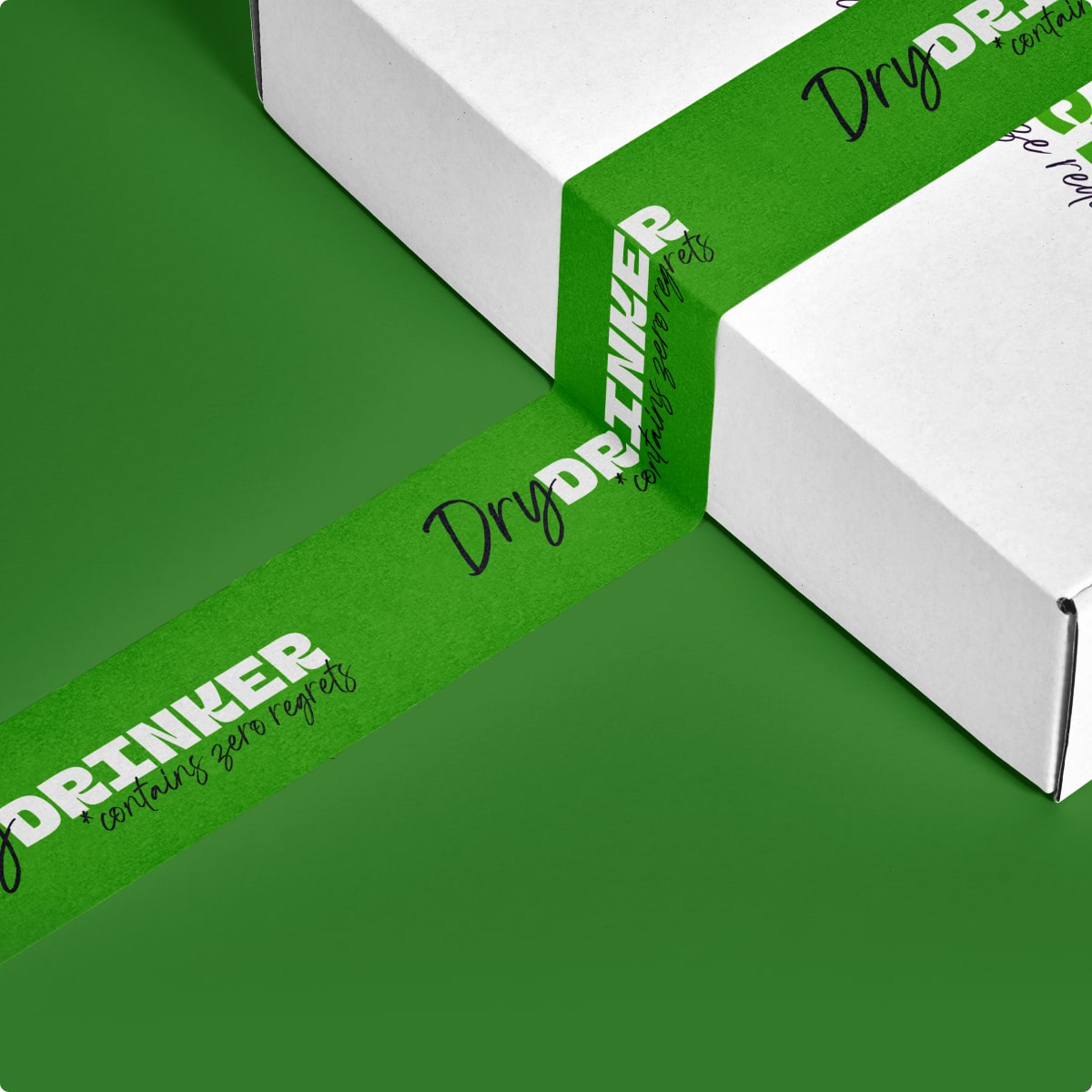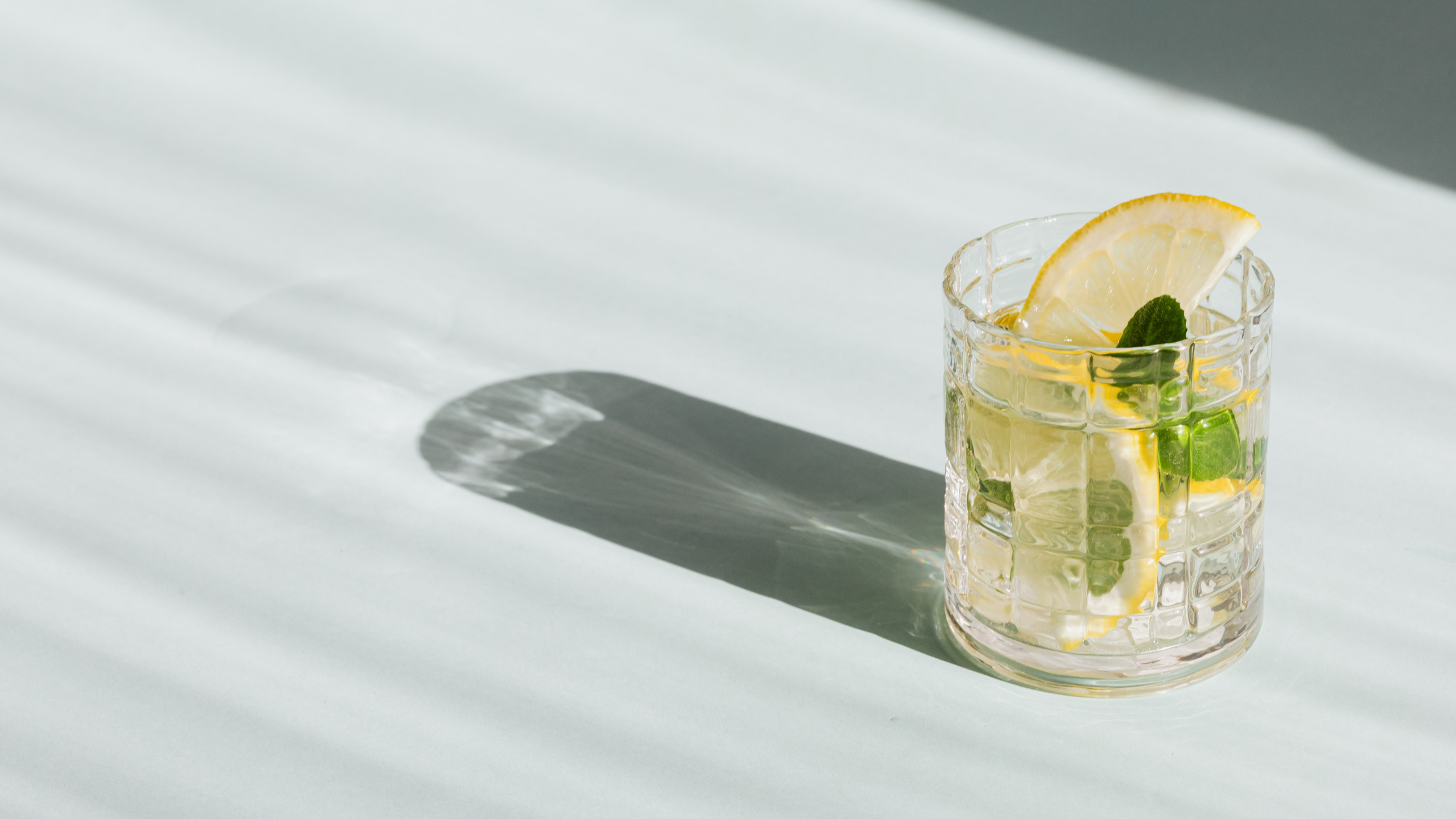As non-alcoholic beers and alternatives are becoming increasingly popular and available, you may be wondering if non-alcoholic beers are a healthy choice. Ingredients, carbohydrates, calories and sugar content vary from brand to brand, but often alcohol-free beer can be a much healthier choice for those wanting to live a clean lifestyle.
In this post, we will be taking a look at how non-alcoholic beer is produced, defining what ‘bad’ means in terms of health, comparing calories, carbohydrates and sugar content and looking at the potential health benefits of non-alcoholic alternatives.
What is Non-Alcoholic Beer?
Non-alcoholic beer is a type of beer that has had its alcohol content reduced to a very low level, usually less than 0.5%. It can be made in one of two ways; dealcoholisation or through limited fermentation. Dealcoholisation involves brewing and fermenting the beer as usual, then removing or reducing the alcohol with additional steps. These steps can be done in one of three ways: vacuum distillation, reverse osmosis or evaporation.
Alternatively, limited fermentation prevents alcohol from being produced from the start by using special strains of yeast and stopping fermentation early. Both of these methods allow individuals who prefer to avoid or limit alcohol consumption to still enjoy the taste and experience of drinking beer.
Currently, UK law outlines three main labels for non-alcoholic drinks, these include:
- Alcohol-free - no more than 0.05% ABV
- De-alcoholised - no more than 0.5% ABV
- Low alcohol - no more than 1.2% ABV
Drinks that contain more than 1.2% ABV are classed as alcoholic.
So, individuals must read labels carefully as some non-alcoholic beers may still contain trace amounts of alcohol which could be problematic for individuals with alcohol sensitivities or those in recovery. However, non-alcoholic beer is offered in a variety of flavours and can often be a much healthier choice.

What Do We Mean By 'Bad For You?'
There are various factors that contribute to a drink being thought of as ‘bad’ or unhealthy. Usually, it’s a combination of calories, sugar content, carbohydrates, dietary fibre, vitamins, minerals and nutritional content. The types of ingredients used also play a role as a drink made with a few natural ingredients will be healthier than one with a long list of synthetic ingredients. In a nutshell, any drink that contains high amounts of calories, sugar, carbohydrates and synthetic ingredients is likely to be the less healthy choice.
Nutritional Content of Non-Alcoholic Beer Vs. Alcoholic Beer
When it comes to the nutritional content of non-alcoholic beer, it's worth noting that it can provide some health benefits. For example, non-alcoholic beer is often rich in B vitamins, which play a crucial role in energy production and brain function. Some non-alcoholic beers may also contain antioxidants, which can help protect the body against oxidative stress. But are these health benefits outweighed by calories and sugar content? Let’s take a closer look.
Calories in Non-Alcoholic Beer
Non-alcoholic beer typically has a lower calorie and sugar content compared to traditional beer. For example, a bottle of alcoholic San Miguel has 45kcal per 100ml, whereas Maisel’s Weisse Non-Alcoholic German Beer contains 25kcal per 100ml. Similarly, Heineken has 42kcal per 100ml compared to 23kcal in Schneider’s Non-Alcoholic Wheat Beer. So, in terms of a lower-calorie drink, non-alcoholic beer wins. But, they may contain more sugar and artificial sweeteners than traditional beers.
Does Non-Alcoholic Beer Contain Sugar?
Yes, they often contain sugar. But why do non-alcoholic beers have more sugar than traditional beers? In traditional beers, sugar is converted into alcohol through the fermentation process, which results in a zero-sugar product (unless sugar is added back in). However, with non-alcoholic beers, taste is often lost through the process of dealcoholisation which means sugar needs to be added back in at the end to improve its quality.
If we look at the above examples, Maisel’s Weisse Non-Alcoholic Beers contains 2g of sugar, and Schnedider’s Non-Alcoholic Beers contain 1.5g per 100ml. This can be compared to 0.0g in both San Miguel and Heineken. Therefore, non-alcoholic beers tend to have slightly more sugar than traditional beers. However, it is possible to find low-sugar, non-alcoholic beers such as Aigua De Moritz Spanish Sugar-Free No Alchohol Beer, which contains zero sugar and only 17kcal per 100ml.

Carbohydrates and Dietary Fibre
Non-alcoholic beers tend to have either the same or more carbohydrates than traditional beers. This is because they contain more sugar which translates into carbohydrates. For example, San Miguel has 3.7g of carbohydrates, whereas Maisel’s Weisse Non-Alcoholic German Beer contains 5.5g per 100ml. Similarly, Heineken contains 3.2g and Schneider’s Non-Alcoholic Wheat Beer contains 5g. Whilst this is not a massive difference in carbohydrates, some non-alcoholic beers can contain up to 8-9g per 100ml. But what about fibre?
The primary ingredients in both non-alcoholic and traditional beer are malted barley, wheat, hops and yeast. Whilst these ingredients contain fibre, the brewing process tends to decrease the fibre content. Other methods and filtration techniques can then further reduce the fibre content, which means neither option is likely to pack a punch in terms of fibre.
Vitamins and Minerals
Non-alcoholic beer may contain B vitamins such as B6, niacin (B3), riboflavin (B2), and folate (B9). B vitamins such as B6, niacin (B3), riboflavin (B2), and folate (B9). These vitamins are naturally present in the grains used during the brewing process. It may also contain minerals such as potassium, magnesium, phosphorus, and trace elements like zinc and copper. The mineral content is influenced by the ingredients used in brewing, such as malted barley.
Natural Ingredients
As with any drink or food product, non-alcoholic beers can be made from synthetic and natural ingredients. The primary ingredients in non-alcoholic beer include water, malted barley, hops, yeast and grains. Brands may then add either artificial or natural colourings and flavourings to improve the quality of look and taste. An example of artificial colouring would be caramel colouring which is usually listed as E150. However, most alcohol-free beers are pretty clean in terms of ingredients and often use special yeast strains to influence flavour, such as those used in Beavertown Lazer Crush Non-Alcoholic IPA.
Non-Alcoholic Beer Vs. Alcoholic Beer
It’s clear that non-alcoholic beers win when it comes to lower calories, but perhaps not so much in terms of sugar content. And in terms of carbohydrates, fibre and ingredients they are pretty similar to traditional beers. So, now that we’ve compared these factors let’s take a look at how non-alcoholic beers compare with soft drinks and juices.
Non-Alcoholic Beer vs. Coca-Cola
When comparing non-alcoholic beer with Coca-Cola, it is clear that alcohol-free beer is a much healthier choice. Let’s compare Krombacher Weizen Non-Alcoholic Wheat Beer with Coca-Cola. Krombacher has 28kcal, 6.1g of carbs and 2.7g of sugar per 100ml. This can be compared to 42kcal, 10.6g of carbs and 10.6g of sugar in Coca-Cola. Even Brothers Alcohol-Free Toffee Apple Cider (which you would expect to be sweet) only contains 33kcal and 8.1g of carbs; less than Coca-Cola.
Non-Alcoholic Beer vs. Juice
Similarly, non-alcoholic beer often has fewer calories, carbohydrates and sugar than fruit juice. For example, 100% pure orange juice has 47kcal, 10.5g of carbs and 10.5g of sugar per 100ml. This is higher on all levels in comparison to all non-alcoholic beers mentioned in this post so far; surprising, hey?!
Similarly, pineapple juice contains 50kcal, 11.4g of carbs and 10.7g of sugar per 100ml. So, again non-alcoholic beer appears to win when it comes to fewer calories, carbohydrates and sugar. However, it is possible to find other juices, such as cranberry juice which only contains 17kcal, 3.7g of carbs and 3g of sugar, which is similar to non-alcoholic beer. Although, fresh juices may contain more vitamins (vitamin C), minerals and antioxidants than non-alcoholic beers, and so the health benefits may counterbalance. But in terms of grabbing a drink with friends in a pub or club, alcohol-free beers appear to be a great, healthy alternative.
Health Benefits of Non-Alcoholic Beer
There are many health benefits associated with non-alcoholic beer, from the ingredients used to the benefits reaped from no longer consuming alcohol. As mentioned previously, it can contain small amounts of B vitamins such as potassium, magnesium and phosphorus. B vitamins play a crucial role in energy production and brain function, and potassium and magnesium contribute towards healthy muscles, nerves, bones and blood sugar levels.
But what other health benefits does alcohol-free beer have?
Hydration and Electrolyte Replenishment
Non-alcoholic beers contain water and electrolytes, which can lead to hydration rather than dehydration as with traditional beers. Staying hydrated has a positive, knock-on effect on many systems in the body, including temperature regulation, lubricating joints, delivering nutrients to cells and improving cognitive function and mood.
Potential Cardiovascular Benefits
One compound in non-alcoholic beer is known to be anti-inflammatory and positively affect the cardiovascular system. These compounds are called polyphenols and are found in malt and hops. Polyphenols add body, bitterness, haziness and flavour to both alcoholic and non-alcoholic beers whilst also contributing to the above health benefits.
Another study examined the effects of athletes drinking Erdinger Alcohol-Free Wheat Beer, which was chosen for its high polyphenol content. This study highlighted the surprisingly noticeable positive benefits of drinking non-alcoholic beer. The marathon runners who drank the above experienced reduced inflammatory reactions, caught fewer colds, experienced less serious respiratory infections and had a strengthened immune system.

Functional Non-Alcoholic Beers
Brands may add in extra natural ingredients such as 5-HTP and L-Theanine to create functional beverages such as Impossibrew Non-Alcoholic Beer. These types of ingredients can aim to create some form of feeling for consumers, such as a lifted mood (5-HTP) or relaxation (L-Theanine) through the consumption of natural ingredients. Another example is ‘On X Blend’ beer which uses botanicals such as ginseng, maca, liquorice and pepper to give the consumer an ‘elevated alcohol-free experience.’
Health Benefits of Going Alcohol-Free
There are multiple health benefits when going alcohol-free, which include short-term and long-term health. Drinking non-alcoholic beer eliminates the immediate negative health effects associated with alcohol consumption, such as impaired cognitive function and the risk of accidents and injury. When it comes to long-term health, choosing non-alcoholic beer can prevent liver damage and lower the risk of cardiovascular disease, both of which are associated with excessive alcohol consumption.
Going alcohol-free can also reduce levels of anxiety and depression, and positively impact mental health as alcohol is a depressant. Therefore, choosing not to drink alcohol can improve mood and mental well-being, as well as lead to improved quality of sleep. Alcohol also suppresses the immune system, so choosing alternatives can improve immune system health.
So, Are Non-Alcoholic Beers Healthy?
Yes, non-alcoholic beers can be considered healthy. Especially, when sugar content is compared to the average soft drink. Obviously, it is not going to be as healthy as a glass of celery juice, but in terms of options when ordering from a bar - it’s an all-around good option. However, if you want to ensure you are picking the healthiest option, read the label carefully to check that it has less than 0.05% ABV and no added sugars or artificial flavourings. A non-alcoholic beer only needs water, barley malt, hops, grains and yeast to taste great!
Potential Downsides and Considerations For Non-Alcoholic Beer
There are a few considerations that may apply when choosing to drink non-alcoholic beer, which include:
- Sodium content - Some non-alcoholic beers may have a higher sodium content than the average beer or soft drink. This may affect people who watch their intake of sodium, due to certain health conditions.
- Sugar content - Some alcohol-free beers may have higher sugar content to compensate for the lack of alcohol.
- Contains gluten - Non-alcoholic beers are typically not gluten-free due to barley and grains being key ingredients, which can be a problem for people with intolerances and digestive sensitivity. Although, it is possible to purchase gluten free beers such as ‘Drop Bear Beer Bonanza’, which are gluten-free and vegan-friendly!
- Labels can be misleading - The term ‘non-alcoholic’ can be misleading, especially for those with certain health conditions or religious beliefs. It’s important to check the label carefully to determine whether it is completely alcohol-free, no more than 0.05% or no more than 1.2% ABV.
- Can be triggering - Non-alcoholic beer can be triggering for those in recovery from alcohol addiction. Simply the smell and taste of alcohol-free beer may act as a trigger for a relapse. Therefore, it’s important for anyone on the path of recovery to talk to a professional before drinking non-alcoholic beer.
As you can see, even though non-alcoholic beer is relatively healthy, it may not be a good option for some individuals - and in these cases, soft drinks may be a better alternative.

Who Might Non-Alcoholic Beer Be Suitable For?
There are many people who may benefit from drinking non-alcoholic beer, including designated drivers, women who are breastfeeding, people in recovery from addiction, athletes and fitness enthusiasts, people watching their calorie intake, individuals with certain health conditions, individuals on certain medication, people with liver conditions, people who abstain from alcohol due to cultural or religious reasons and health-conscious individuals.
5 Great Alcoholic Beers To Try
1. Kehrwieder Ü.NN India Pale Ale - Non-Alcoholic IPA
This masterfully crafted beer delivers all the excitement and complexity you'd expect from a traditional IPA, without the alcohol content, making it the perfect choice for any occasion. *tropical fruits and citrus notes, beautifully balanced by a backdrop of earthy, piney hops.
2. Nirvana Brewery Bavarian Helles - Non-Alcoholic Lager
Undoubtedly more intriguing than the majority of typical full-strength lagers. If you didn't know this was a low-alcohol lager, you probably wouldn't be able to tell the difference. *fresh, sweet, and biscuity with a hint of caramel and clove.
3. Vandestreek Hard Pour - Non-Alcoholic Nitro Coffee Stout
This stout is a homage to traditional brewing techniques, enhanced by a modern nitrogen infusion process. When served, the nitrogen infusion creates a creamy, thick head reminiscent of the most prestigious draft pours. *an authentic flavour profile with real coffee and cocoa.
4. Infinite Session Alcohol-Free IPA - Zero Sugar
Savour the tantalising fusion of a zesty IPA, a bitter pale ale, and a crisp lager, all rolled into one irresistible, guilt-free pleasure. This enchanting brew is low in sugar, vegan-friendly, and gluten-free, making it the perfect choice for those seeking a healthier and more inclusive option. *zesty citrus, ripe tropical fruits, and fragrant floral hops, all perfectly balanced by a subtle malt backdrop
5. Impossibrew Enhanced - Non-Alcoholic Lager
Crafted with Impossibrew's innovative Social Blend™, this exceptional beer offers a unique combination of active, plant-based ingredients designed to elevate serotonin levels without inducing drowsiness. It's the ideal choice for unwinding without the worry of a hangover the following day. *delicate hibiscus floral aroma, intertwined with hints of earthy turmeric and zesty ginger.
So is Non-Alcoholic Beer Bad For You?
No, non-alcoholic beer is not bad for you. It is a healthy alternative for those wanting to consume fewer calories and avoid the health implications associated with alcohol. In fact, on many levels, it can be healthier than the average soft drink; containing less sugar, more vitamins and minerals. and anti-inflammatory compounds such as polyphenols. There are health benefits to be reaped from drinking some non-alcoholic beers, such as those containing high levels of anti-inflammatory compounds called polyphenols. Some functional beers may have further health benefits, such as those containing ingredients such as 5-HTP, which can elevate serotonin levels and L-Theanine, which can promote relaxation.
There are considerations for some individuals, who may experience health conditions, who are in recovery or who have certain religious or cultural beliefs. However, generally, non-alcoholic beer is a healthy option for most people.
Want to check out some of the latest, masterfully crafted non-alcoholic beers on the market?
Check out our huge range of non-alcoholic beers, perfect to take to social gatherings or gift your health-conscious friends and family.
Don’t know where to start?
Sign up for our Dry Drinker Subscription box and receive 8 x hand-picked alcohol-free craft beers each month. Choose either light beers or mixed beers and savour the best no and low-alcohol drinks curated just for you!












